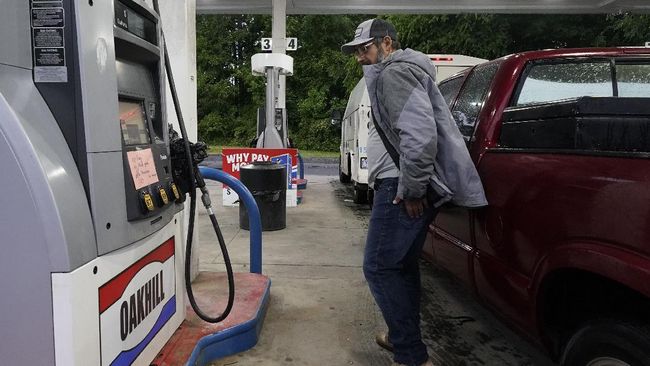Artist Maudy Ayunda inject funds for grocery commerce startups Segari. Maudy is one of the investors who provided Series A funding for Segari at the age of one year.
The woman who graduated from Stanford University was interested in investing in Segari, not just looking for profit. “For me, the investment is more than the nominal that we contribute,” Maudy said in a press release, Tuesday (19/10).
Maudy chose Segari because it has an impact on the community and farmers. He was intrigued by Segari’s business model which helps local farmers to earn a fair income from the products they sell. “I think this is a business model that can be the future of the Indonesian e-grocery industry.”
Segari’s cofounder, Farand Anugerah, is Maudy’s friend who introduced his company. “Me and Maudy Ayunda have the same vision. When we were studying in America, we wanted to return to Indonesia and make a positive impact by using technology,” said Segari Cofounder, Farand Anugerah.
Farand, who studied at Harvard before founding Segari, described Tim Segari’s dream to develop an e-grocery service. “Maudy gave a very positive response.”
Maudy Ayunda said that before deciding to invest, he became a Segari customer. She loves her shopping experience because she gets fresh produce. “Ordering products is also very easy and delivered directly to the house.”
Read Also
Previously, Segari received series A funding worth US$ 16 million or Rp 226.8 billion. The funding is led by a venture capital company created by gojek, Go-Ventures.
Apart from Gojek, a number of other investors were also involved, including Susquehanna International Group (SIG), Alfamart, Gunung Sewu Group, and Intrinity Capital. As for investors involved in early-stage funding or existing investor, namely BEENEXT, AC Ventures and Saison Capital.
Segari was founded by Yosua Setiawan in 2020. Prior to founding Segari, Setiawan worked at Boston Consulting Group and unicorn Traveloka. The other founders, Farand Anugerah, served as COO, and Farandy Ramadhana as CTO.
In less than 12 months of establishment, Segari meets the basic needs of the market share of DKI Jakarta. Segari also managed to increase the number of users, orders, and revenue more than 20 times.
Segari currently serves around 250,000 users. Segari has an extensive network of farmer partners in Java and Sumatra and a decentralized system of warehouse and sales partner networks.
Fresh running a business scheme social commerce by utilizing technology and attracting communities. The goal is to simplify the distribution chain of basic needs.
Segari users can then access various products, such as basic needs, vegetables, fruit, meat through the platform. Segari claims, these products can be distributed from farmers to consumers within 15 hours.
– .


